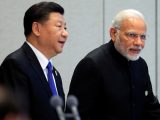
Bangladesh’s Struggle for Sovereignty: A Shift from Indian Influence to Regional Cooperation
November 3, 2024As discontent simmers in Bangladesh over the former government’s close ties with Indian interests, both Bangladesh and Pakistan are looking to strengthen their bilateral relations. This shift is marked by an emphasis on regional cooperation, autonomy, and addressing historical grievances within the South Asian Association for Regional Cooperation (SAARC).
The recent political landscape in Bangladesh has undergone significant changes, particularly following the tenure of Sheikh Hasina Wajid, who faces approximately 170 First Information Reports (FIRs) linked to serious human rights violations, including allegations of genocide and murder. Many in Bangladesh believe her administration was excessively influenced by India, undermining national sovereignty. In response to corruption allegations, the interim government has frozen financial accounts belonging to Wajid’s family, indicating growing public dissatisfaction with perceived Indian favoritism.
A UN Commission for Human Rights (UNCHR) team is currently investigating the alleged abuses during Wajid’s administration, an initiative welcomed by the Bangladeshi populace as a chance to bring accountability for the human rights violations tolerated under her rule. This investigation resonates with a broader public sentiment advocating for justice and an end to the authoritarian practices of the previous regime. Recent legislative reforms have dismantled protections for the Mujib family, marking a significant step towards political reform and addressing the population’s needs over external influences.
On October 6, 2024, a notable event unfolded with the inauguration of the Bangladesh Army Selection Board at Army Headquarters by Chief Advisor Yunus. This event not only symbolizes the army’s commitment to autonomy but also reflects a resurgence of national pride and independence, distancing itself from Indian control. Meanwhile, Sheikh Hasina Wajid’s son, Sajeeb Wazed Joy, has hired the U.S.-based lobbying firm Stryk Global Diplomacy to mitigate the fallout from ongoing allegations against him, showcasing efforts to maintain a favorable international image.
India’s approach as a regional power has been marked by unilateralism, illustrated by its reluctance to engage with Bangladesh during the recent UN General Assembly. This disregard for Bangladesh’s requests has intensified diplomatic frustrations, leading to the recall of its envoy from New Delhi. Additionally, the Indian Ministry of External Affairs has been accused of manipulating Bangladeshi politics to support the Awami League, further straining bilateral relations.
Bangladesh’s recent strong protests against derogatory remarks made by the Indian Home Minister highlight its determination to protect its sovereignty. This assertive stance was further reinforced when Bangladeshi Prime Minister Shehbaz Sharif and Chief Advisor Yunus met during the UN General Assembly, reiterating their commitment to renewing SAARC. This meeting paves the way for stronger cooperation between the two countries, with a visit by WuZ to Pakistan anticipated in late November 2024.
Efforts to enhance trade are underway, with Bangladesh’s National Board of Revenue easing import inspection requirements for goods from Pakistan. Furthermore, the Bangladeshi Ministry of Foreign Affairs is actively promoting educational opportunities for students in Pakistan, a move aimed at strengthening people-to-people connections and fostering mutual understanding.
Bangladesh’s renewed endorsement of SAARC, alongside support from neighboring Nepal, signals a shared vision for regional collaboration and economic integration. As both nations work to transcend their historical grievances, the path toward a more cooperative future in South Asia appears increasingly viable, promising greater autonomy and collective strength against external influences.

